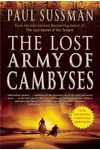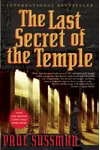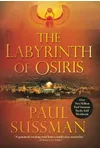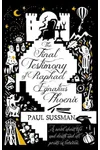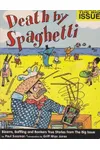Picture an English archaeologist who swapped dusty tombs for pulse-pounding thrillers, weaving ancient Egyptian mysteries into modern tales—meet Paul Sussman! A bestselling author whose Yusuf Khalifa series captivated readers in 33 languages, Sussman’s intelligent, gripping novels blend history and suspense with a flair few could match. His life, cut short in 2012, left a legacy that still thrills readers today.
The Making of Paul Sussman
Born on July 11, 1966, in Beaconsfield, England, Paul Nicholas Sussman grew up in Northwood, where his fascination with archaeology sparked at age six during a visit to the Tutankhamen exhibition. Educated at Merchant Taylors’ School and St. John’s College, Cambridge, he earned a Joseph Larmor Award and a boxing blue while dabbling as a band’s lead singer. Before writing, Sussman’s eclectic career included gravedigging in France, selling cigars at Harrods, and playing Aunt Sponge in a quirky *James and the Giant Peach* production. His journalism stint at *The Big Issue*, where he won a Columnist of the Year Award for his satirical “In The News” column, honed his storytelling chops.
Paul Sussman’s Unforgettable Stories
Sussman’s novels, set against Egypt’s sun-scorched deserts, fuse archaeological intrigue with modern detective work. His debut, *The Lost Army of Cambyses* (2002), introduces Inspector Yusuf Khalifa, a thoughtful Luxor detective unraveling murders tied to a vanished Persian army from 523 BC. The second in the series, *The Last Secret of the Temple* (2005), pairs Khalifa with Israeli detective Arieh Ben-Roi to probe a murder linked to ancient treasures, earning praise as “the intelligent reader’s answer to *The Da Vinci Code*.” *The Hidden Oasis* (2009) explores a lethal conspiracy spanning millennia, while *The Labyrinth of Osiris* (2012), his final novel, tackles a journalist’s murder with ties to a 1930s Egyptologist’s lost gold mine. Sussman’s style—rich with historical detail, taut plotting, and vivid characters—reflects his years as a field archaeologist, notably unearthing pharaonic jewelry in the Valley of the Kings.
His ability to humanize complex characters, like the grieving yet brave Khalifa, and weave real-world issues, such as Middle Eastern tensions, into thrilling narratives set him apart. Critics lauded his deep research and atmospheric settings, with *The Mail on Sunday* calling his work “top-drawer popular fiction.”
Why Paul Sussman Matters
Sussman’s novels, translated into 33 languages and selling over two million copies, brought Egypt’s past to life for a global audience. His archaeological expertise lent authenticity, while his nuanced portrayal of cultural dynamics offered readers a window into the Middle East’s complexities. His sudden death from a ruptured aneurysm at 45 left fans mourning the loss of more Khalifa adventures, but his books endure, inspiring readers and writers in the archaeological thriller genre. In 2019, *The Khalifa Mysteries* sparked interest for a TV adaptation, cementing his lasting influence.
- Born: July 11, 1966, Beaconsfield, England
- Key Works: *The Lost Army of Cambyses*, *The Last Secret of the Temple*, *The Hidden Oasis*, *The Labyrinth of Osiris*
- Awards: Periodical Publishers Association Columnist of the Year
- Died: May 31, 2012, London
Snag *The Lost Army of Cambyses* and dive into Paul Sussman’s thrilling world of ancient secrets and modern mysteries!
